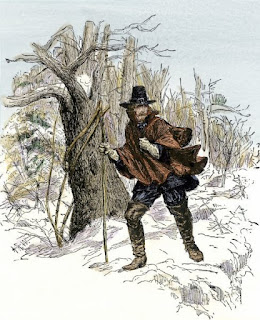Loving Strangers
Hebrews 13:1-2
January 1st Devotional
On this day in 1892, Ellis Island opened its door to welcome immigrants. This island located in the New York Upper Bay was named after Samuel Ellis. Ellis purchased the island in 1774 but it didn’t turn into a financial success. The island would be passed down from family member to family member. Later it would be used as a place to try and execute pirates and as a home for Fort Gibson. The federal government used transformed this plot of land to become an “Island of hope” or a Gateway for newly arrived immigrants. On that first day, there were three large ships in the bay. Ships filled with weary travelers from Europe who were seeking security, safety, and new opportunities. The first to be processed was Annie Moore and her two younger brothers. They were from Ireland and were all minors. Most of those seeking entrance into the United States came from Europe. The situation in Europe was dire at that time. Food was scarce, governmental tensions were high, and many, namely Jews, were seeking asylum in a place that would provide them religious freedom. 700 total immigrants came through Ellis Island that first day. The weary travelers had already endured an arduous journey but would have to wait in line for typically 3-7 hours as they were questioned by immigration officials and examined by doctors. Over 450,000 people poured through those gates of hope that first year. There were nearly 1900 immigrants a day during the time prior and during World War I. Over 12 million people were processed in the fifty years of Ellis Island’s existence. The history channel reports that an estimated 40% of Americans can trace at least one ancestor that gained entrance into the United States through Ellis Island.
Also greeting immigrants was the Statue of Liberty, or as many simply called her, “Lady Liberty” or “The Lady.” The Statue of Liberty has these words inscribed on it “Give me your tired, your poor, your huddled masses yearning to breathe free, the wretched refuse of your teeming shore. Send these, the homeless, tempest-tossed to me, I lift my lamp beside the golden door.” America has been built on helping the helpless and providing opportunity and hospitality to strangers. As Christians, we are to treat others in a similar fashion. We are to love the tired, the poor, the rejected, the homeless, and the outcast. God has not called us to simply love and care for the household of faith, but instead to show kindness and grace to those who desperately need the love of God showered on their lives. The writer of Hebrews wrote “Let love of the brothers and sisters continue. Do not neglect hospitality to strangers, for by this some have entertained angels without knowing it (Hebrews 13:1-2).” The Greek word for hospitality is used sparingly in the New Testament (four times). On one occasion the word talks about a lover of hospitality. Each time the word isn’t used as an action, but instead as an adjective, a description of someone. It isn’t so much something we are supposed to do, but WHO we are. We don’t show hospitality, we ARE hospitable. Each of us starts out the new year with certain resolutions and goals, but this year be spiritually resolved to show hospitality to the lost, to the hurting, to the broken, and maybe even the neighbor who you don’t know yet. Be intentional to open the doors of your home and your heart to those that are far from Christ.























